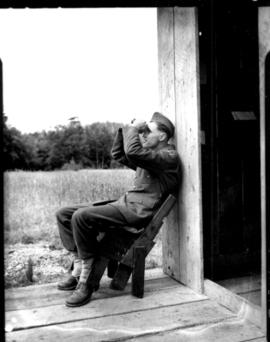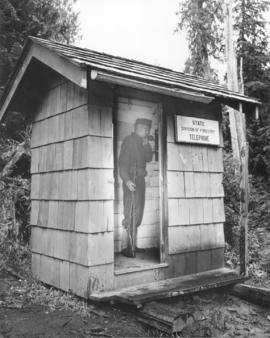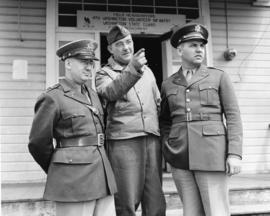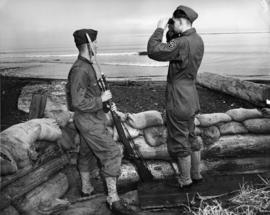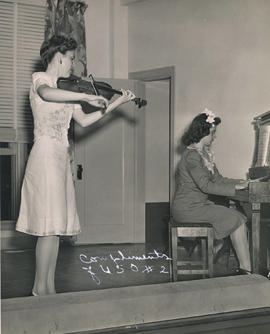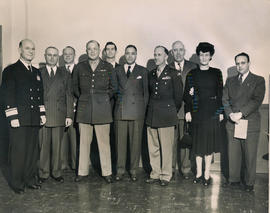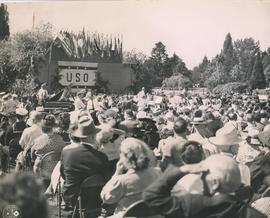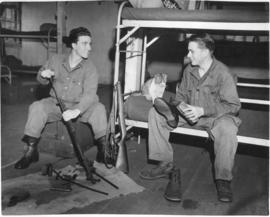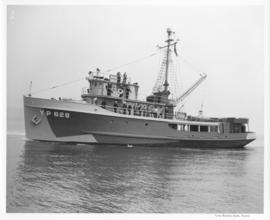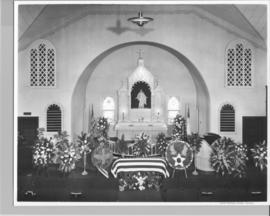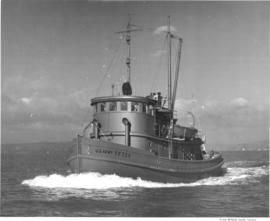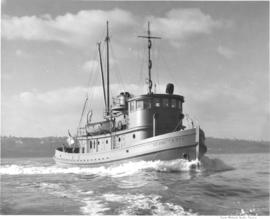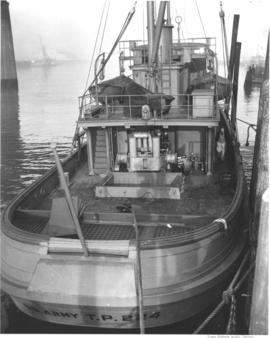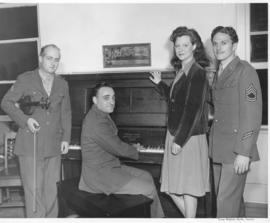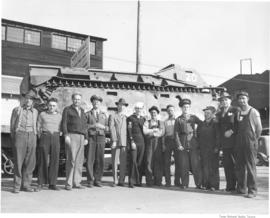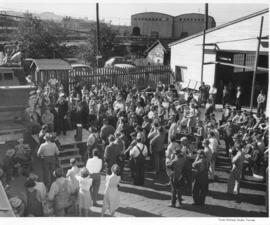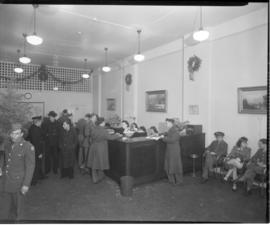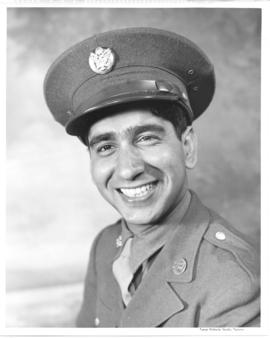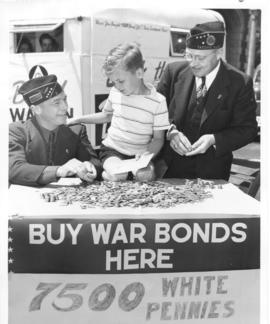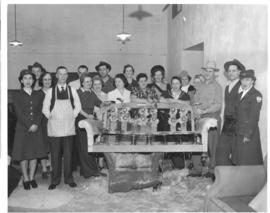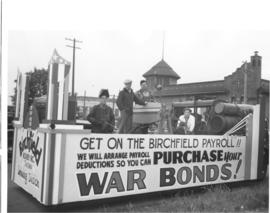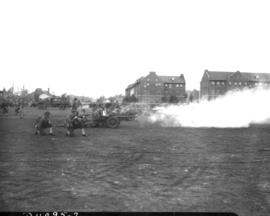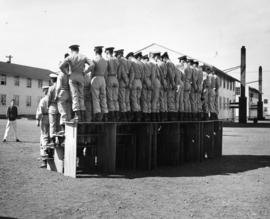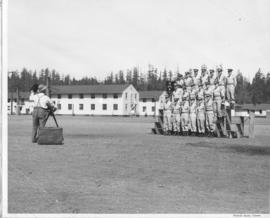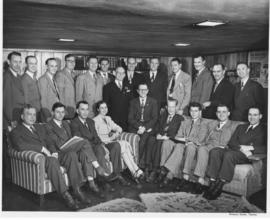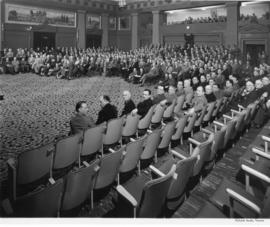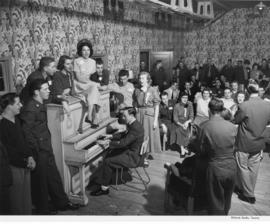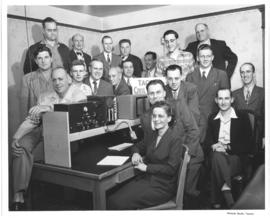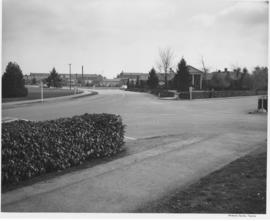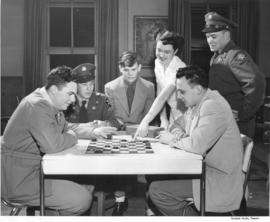Members of the Radio Club of Tacoma, Inc. The Tacoma Club was one of the oldest radio clubs in the US, having been organized and in continuous operation for more than 35 years.The Club was relied on heavily by the Communications Division of Civil Defense and expected to facilitate communication in the case of an emergency. The Club members were fully trained and licensed amateur radio operators. The Club owned its own equipment consisting of two complete transmitting and receiving stations, one used for Civil Defense emergencies and one for Red Cross emergencies. In addition, they owned four auxiliary lighting units for nighttime emergencies and 15 members had mobile communication units in their cars. The emergency frequency band used by the Club was monitored 18 hours a day by Mrs. Irma Aufang. The constant monitoring was made possible by a "squelch" receiver, developed by Max Bice and Dick Engh- engineers at KTNT. The receiver remained silent unless activated by the "squelch" receiver signal initiated by an emergency. Members are- back row, left to right: Ernest Ripola, Roy Devigh, Sid Sowers, Engh, Dale Cook, Alex Braidwood, President of the Club, Richard McDonald & Art Paul. Row behind transmitters: Ray Estep, Bruce Ross, Dr. F.C.J. Spike, Charles Emigh & Walt King. Seated: Mrs. Aufang. In front of transmitters: Charles Aufang, Tacoma Emergency Co-ordinator, Bice, Cliff Osborne, Jr., Gene Dodge & Ralph Upright. (TNT 4/29/1951, pg. A-19)
Korean War, 1950-1953--Civil defense--Tacoma; Radio Club of Tacoma, Inc. (Tacoma); Aufang, Irma; Bice, Max; Engh, Dick; Braidwood, Alex; Aufang, Charles;
